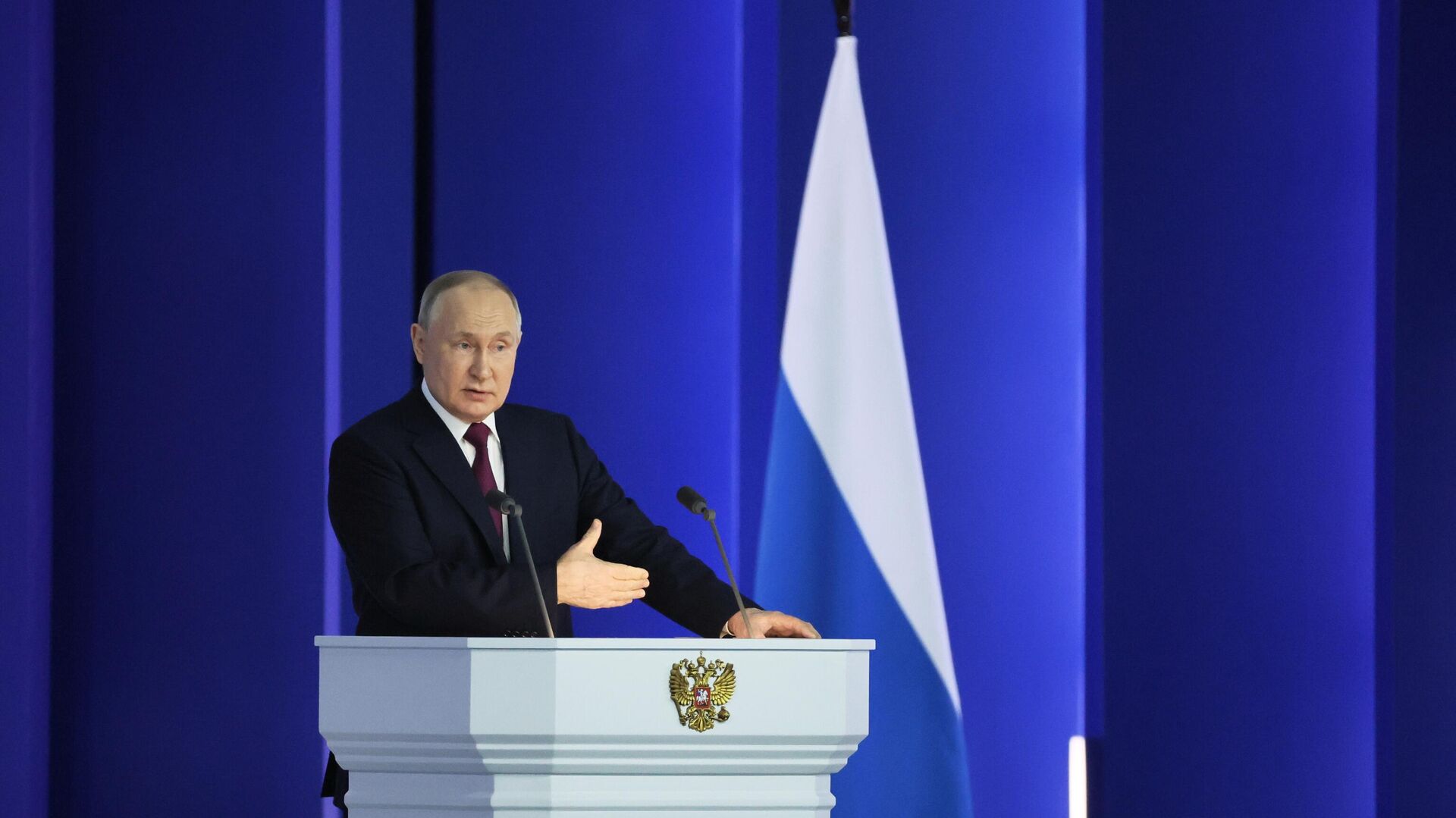https://sputnikglobe.com/20230221/putins-speech-from-russias-economic-growth--military-advancements-to-new-start-suspension-1107672755.html
Putin's Speech: From Russia's Economic Growth & Military Advancements to New START Suspension
Putin's Speech: From Russia's Economic Growth & Military Advancements to New START Suspension
Sputnik International
Russian President Vladimir Putin on February 21 delivered a keynote speech addressing the Federal Assembly. Even though the West targeted Russia's economy, society, and military, it has failed to inflict damage on the nation, according to Putin.
2023-02-21T17:29+0000
2023-02-21T17:29+0000
2023-02-21T17:29+0000
analysis
us
europe
russia
ukraine
economy
sanctions
new start treaty
nuclear arms
us military aid
https://cdn1.img.sputnikglobe.com/img/07e7/02/15/1107675196_0:125:3071:1852_1920x0_80_0_0_b372729659878421c38657e2d690164f.jpg
"My personal impression is that that was a very self-confident speech of the president of a country which is not just struggling through a difficult war, but is developing and looking forward into the future with optimism," Dmitry Suslov, deputy director of the Center for European and International Studies at Russia’s Higher School of Economics and deputy director of research at the Russian Council on Foreign and Defense Policy, told Sputnik. "And the major conclusion that I personally make from this speech, the major impression that I have from the speech is that despite the Western efforts to inflict a strategic defeat on Russia, Russia has successfully adapted to the new environment."Confident Growth & Transformation of EconomyRussia has adapted and continues to adapt successfully, economically, socially, and in other dimensions, according to the Russian scholar. The nation is not "enduring" the crisis, but it uses it as a ladder and an opportunity.Some figures, cited by the president, show that Russia’s gross domestic product (GDP) only decreased by 2.1% last year despite the unprecedented restrictions, while the nation's unemployment stands at 3.7%, which is a historic low. At the same time, Russian businesses have established new partnerships and new logistic routes demonstrating resilience and potential for growth. The country's economy grew in the third and fourth quarters of 2022, shifting to new markets and exploring new production capabilities with high added value. "Russia is committed to developing its high tech, its science, and research industries, and so on," Suslov remarked.At the same time, the Russian president made it clear that all the objectives set at the beginning of the special military operation will be achieved. Suslov pointed out that judging from Putin's speech, the country's leadership is committed to "a successful and victorious conclusion" of the special military operation, no matter how long it might take."Putin did not identify any time frame for the conclusion of the special military operation, but he did emphasize that Russia is absolutely committed to fulfillment of all its purposes," Suslov noted. "So without question, Russia considers this special military operation in particular and the hybrid war that the West conducts against Russia in general as a very long-term reality, a part of the new context that will surround Russia for the observable future. Again, despite this context and in the context of this new reality, Russia will continue to develop successfully."Putin Nailed It When Criticizing the WestThe West is likely to react aggressively to Putin's speech, especially because many of the issues he touched upon were spot on, Sputnik's interlocutors said."It will be criticized because of the statement that the West has started attacking Russia in 2014, arming the Ukrainian forces and deploying NATO armaments to the borders of Russia," Paolo Raffone, a strategic analyst and director of the CIPI Foundation in Brussels, told Sputnik. "It will be discounted as weak on the economy because it does not recognize the negative effect of sanctions. It will be considered aggressive because it does not abide by the withdrawal of Russian forces from Ukraine. It will be considered threatening because of freezing [New] START."The West has found itself in an awkward position given that the sweeping sanctions repeatedly slapped on Russia since the start of the Ukraine operation have not only failed to disrupt the country's economy, but backfired on the US and its allies, according to the observer."Sanctions have greatly weakened Europe and made it more energy-dependent on the US," echoed Tony Kevin, former Australian ambassador to Poland and Cambodia and former carrier officer of the Australian Foreign Ministry, the author of two books on Russia, Return to Moscow (2017) and Russia and the West (2019).Similarly, the West's weapons supplies to Kiev have not stopped Russia from achieving its objectives. During his speech, Putin warned that if the West supplies long-range weapons to Ukraine, then that will only force Russia to push these weapons even farther from its borders.Furthermore, Putin should not come for the West like a bolt from the blue, given that Russian Foreign Minister Sergey Lavrov and other Russian officials have been saying similar things for weeks, according to Kevin."It is obviously essential commonsense - whatever long-range targeted missiles the West gives to Kiev, so much wider a demilitarized zone has to be created beyond the four newly incorporated provinces in order to protect all their territory from future attack from a possible future revanchist Kiev state," he said. "Note that Putin is not making territorial claims beyond ensuring future security of the four provinces. He says nothing about invading all of Ukraine, he leaves such matters to the Russian military command to do whatever has to be done."Suspension of New STARTRussia's decision to suspend – not to withdraw, but to freeze – the New START Treaty also stems from clear logic, according to the observers.During his speech, the Russian president cited several examples of Washington's attempts to overhaul the post-WW2 world order, agreed by major allied powers in Yalta in February 1945. Putin referred to the US' unilateral withdrawals from milestone strategic weapons treaties as well as instances when the West has resorted to outright cheating by expanding NATO towards Russia's borders and deploying massive ballistic missile installations in Europe under the guise of an illusionary nuclear threat from Iran.Vladimir Putin drew attention to the fact that New START and previous nuclear arms reduction treaties were closely connected to limitations on the deployment of ballistic missile installations in Europe. During the Soviet era, this threat was capped by the 1972 Anti-Ballistic Missile Treaty (ABM) signed between the United States and the Soviet Union which limited Moscow and Washington’s ability to build ballistic missile interceptors. However, George W. Bush unilaterally tore it apart in 2002, thus opening the door to a potential arms race.Furthermore, the Russian president pointed out that the principle of reciprocity when it came to mutual inspections of nuclear sites under New START was not fully observed by the US. Moreover, NATO's two other nuclear powers, the UK and France, have never been bound by the treaty. On top of that, the West has openly proclaimed Russia's strategic defeat as its primary goal.NATO's request that Russia provide access to its nuclear sites to the bloc's representatives amid an all-out hybrid war waged by the alliance against Moscow was an attempt to "normalize" the West's modus operandi, according to Suslov. If Russia bowed down and continued to comply with the New START agreements despite the West openly naming it as an "adversary" and pledging to bleed it white would have been a step in the wrong direction, the scholar suggested.According to Suslov, Putin's decision was "necessary" and "stabilizing." At the end of the day, it's not the suspension of New START that could heighten the risk of nuclear confrontation, but Washington's relentless efforts to inflict strategic defeat on Russia, to wipe Russia off the list of great powers, to weaken it irreversibly with all possible moves – "this is the major threat of nuclear war, because this policy which the United States conducts creates an immense risk of direct military clash between Russia and NATO, Russia and the United States," the Russian scholar concluded.
https://sputnikglobe.com/20230221/from-new-start-freeze-to-reasons-for-ukraine-op-key-takeaways-from-putins-federal-assembly-address-1107653700.html
https://sputnikglobe.com/20221227/russias-grain-fleet-why-is-west-so-unnerved-about-moscow-growing-independent-1105827047.html
https://sputnikglobe.com/20230218/hungarys-orban-says-europe-may-end-up-sending-troops-to-ukraine-1107582191.html
https://sputnikglobe.com/20230221/whats-new-start-treaty-and-why-did-russia-suspend-it-1107667839.html
https://sputnikglobe.com/20221213/21-years-ago-today-us-rips-up-abm-treaty-with-russia-starting-slow-slide-toward-current-crisis-1105420298.html
russia
ukraine
Sputnik International
feedback@sputniknews.com
+74956456601
MIA „Rossiya Segodnya“
2023
News
en_EN
Sputnik International
feedback@sputniknews.com
+74956456601
MIA „Rossiya Segodnya“
Sputnik International
feedback@sputniknews.com
+74956456601
MIA „Rossiya Segodnya“
putin's speech, putin's address to federal assembly, russia's economic growth, russia's military advancements, new start treaty suspension, abm treaty collapse, russian nuclear weapons, us and nato hybrid war against russia, new start treaty inspections
putin's speech, putin's address to federal assembly, russia's economic growth, russia's military advancements, new start treaty suspension, abm treaty collapse, russian nuclear weapons, us and nato hybrid war against russia, new start treaty inspections
Putin's Speech: From Russia's Economic Growth & Military Advancements to New START Suspension
Russian President Vladimir Putin on February 21 delivered a keynote speech addressing the Federal Assembly. Even though the West targeted Russia's economy, society, and military, it has failed to inflict damage on the nation, according to Putin.
"My personal impression is that that was a very self-confident speech of the president of a country which is not just struggling through a difficult war, but is developing and looking forward into the future with optimism," Dmitry Suslov, deputy director of the Center for European and International Studies at Russia’s Higher School of Economics and deputy director of research at the Russian Council on Foreign and Defense Policy, told Sputnik. "And the major conclusion that I personally make from this speech, the major impression that I have from the speech is that despite the Western efforts to inflict a strategic defeat on Russia, Russia has successfully adapted to the new environment."
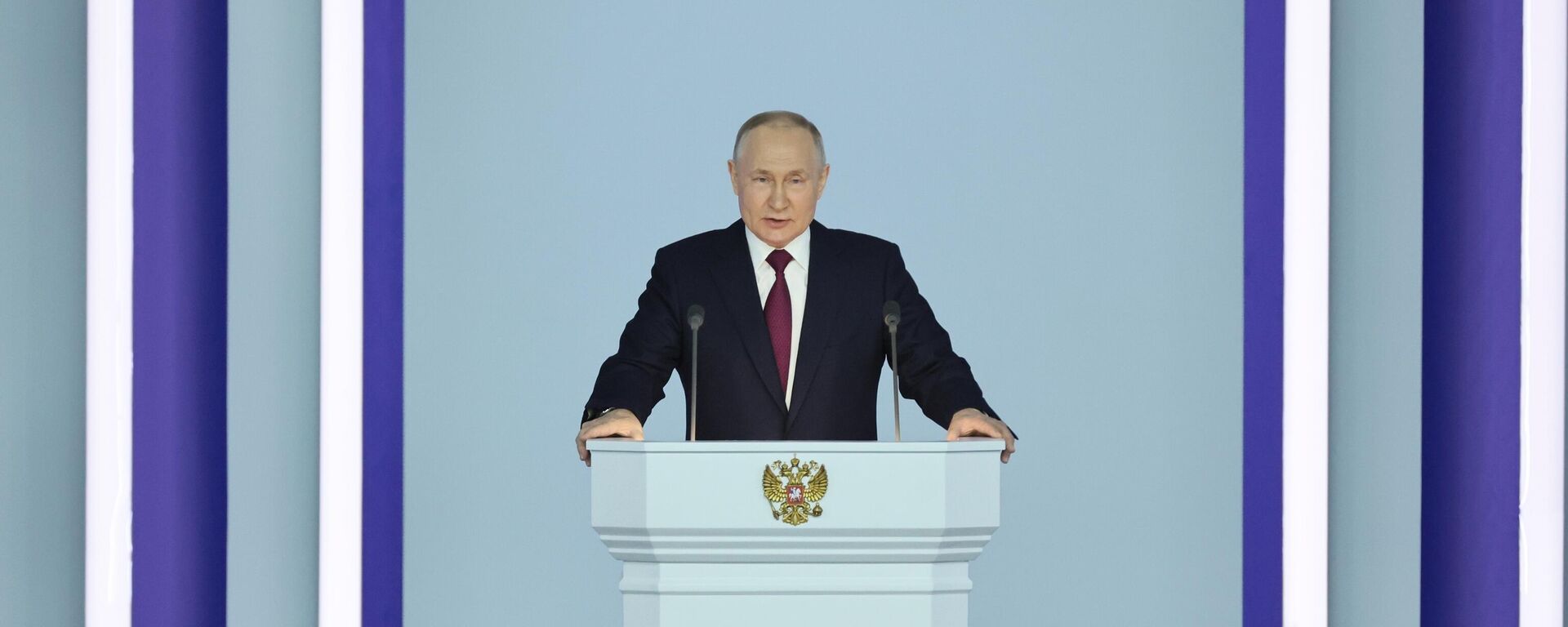
21 February 2023, 12:38 GMT
Confident Growth & Transformation of Economy
Russia has adapted and continues to adapt successfully, economically, socially, and in other dimensions, according to the Russian scholar. The nation is not "enduring" the crisis, but it uses it as a ladder and an opportunity.
Some figures, cited by the president, show that Russia’s gross domestic product (GDP) only decreased by 2.1% last year despite the unprecedented restrictions, while the nation's unemployment stands at 3.7%, which is a historic low. At the same time, Russian businesses have established new partnerships and new logistic routes demonstrating resilience and potential for growth. The country's economy grew in the third and fourth quarters of 2022, shifting to new markets and exploring new production capabilities with high added value. "Russia is committed to developing its high tech, its science, and research industries, and so on," Suslov remarked.
"Putin claimed and emphasized the proof that despite the shift of the paradigm, Russian economic development is very sustainable, quite dynamic and that a positive future also lies ahead," the Russian scholar stressed. "At the same time, a crucial element of the new context, the crucial implication of the hybrid war which the West conducts against Russia, is that for Russian businessmen and for Russian people, the only place in the world which is truly safe in all dimensions, economic, financial, and physical, is Russia itself."
At the same time, the Russian president made it clear that all the objectives set at the beginning of the special military operation will be achieved. Suslov pointed out that judging from Putin's speech, the country's leadership is committed to "a successful and victorious conclusion" of the special military operation, no matter how long it might take.
"Putin did not identify any time frame for the conclusion of the special military operation, but he did emphasize that Russia is absolutely committed to fulfillment of all its purposes," Suslov noted. "So without question, Russia considers this special military operation in particular and the hybrid war that the West conducts against Russia in general as a very long-term reality, a part of the new context that will surround Russia for the observable future. Again, despite this context and in the context of this new reality, Russia will continue to develop successfully."

27 December 2022, 17:51 GMT
Putin Nailed It When Criticizing the West
The West is likely to react aggressively to Putin's speech, especially because many of the issues he touched upon were spot on, Sputnik's interlocutors said.
"It will be criticized because of the statement that the West has started attacking Russia in 2014, arming the Ukrainian forces and deploying NATO armaments to the borders of Russia," Paolo Raffone, a strategic analyst and director of the CIPI Foundation in Brussels, told Sputnik. "It will be discounted as weak on the economy because it does not recognize the negative effect of sanctions. It will be considered aggressive because it does not abide by the withdrawal of Russian forces from Ukraine. It will be considered threatening because of freezing [New] START."
The West has found itself in an awkward position given that the sweeping sanctions repeatedly slapped on Russia since the start of the Ukraine operation have not only failed to disrupt the country's economy,
but backfired on the US and its allies, according to the observer.
"Sanctions have greatly weakened Europe and made it more energy-dependent on the US," echoed Tony Kevin, former Australian ambassador to Poland and Cambodia and former carrier officer of the Australian Foreign Ministry, the author of two books on Russia, Return to Moscow (2017) and Russia and the West (2019).
"Russia has dealt easily with sanctions because of its resources, its trusting and growing trade links with the Global South and Global East, and its own capacities for efficient import substitution. The West has been trapped in its own false narrative that it remains at the center of the world economic order, when it clearly no longer does. Both the US and Europe are increasingly economically dysfunctional, and Russia can safely look East and South. The West has lost the power to harm Russia," Kevin told Sputnik.
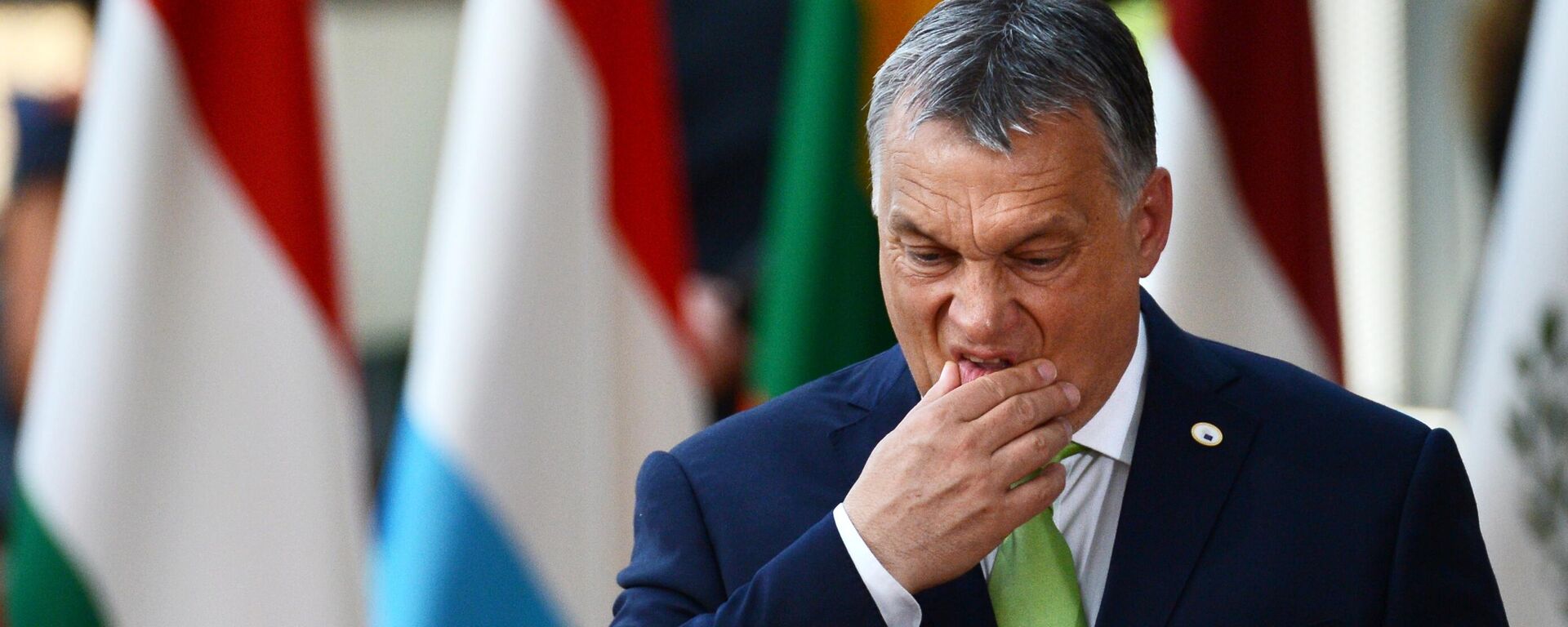
18 February 2023, 17:42 GMT
Similarly, the West's
weapons supplies to Kiev have not stopped Russia from achieving its objectives. During his speech, Putin warned that if the West supplies long-range weapons to Ukraine, then that will only force Russia to push these weapons even farther from its borders.
"It is a clear message to the US, UK and NATO that should they supply long-range armaments to Ukraine, Russia will move forward the line of security in Western territories, potentially targeting areas deeper in the EU. It is a normal military response to a threat," Raffone emphasized.
Furthermore, Putin should not come for the West like a bolt from the blue, given that Russian Foreign Minister Sergey Lavrov and other Russian officials have been saying similar things for weeks, according to Kevin.
"It is obviously essential commonsense - whatever long-range targeted missiles the West gives to Kiev, so much wider a demilitarized zone has to be created beyond the four newly incorporated provinces in order to protect all their territory from future attack from a possible future revanchist Kiev state," he said. "Note that Putin is not making territorial claims beyond ensuring future security of the four provinces. He says nothing about invading all of Ukraine, he leaves such matters to the Russian military command to do whatever has to be done."
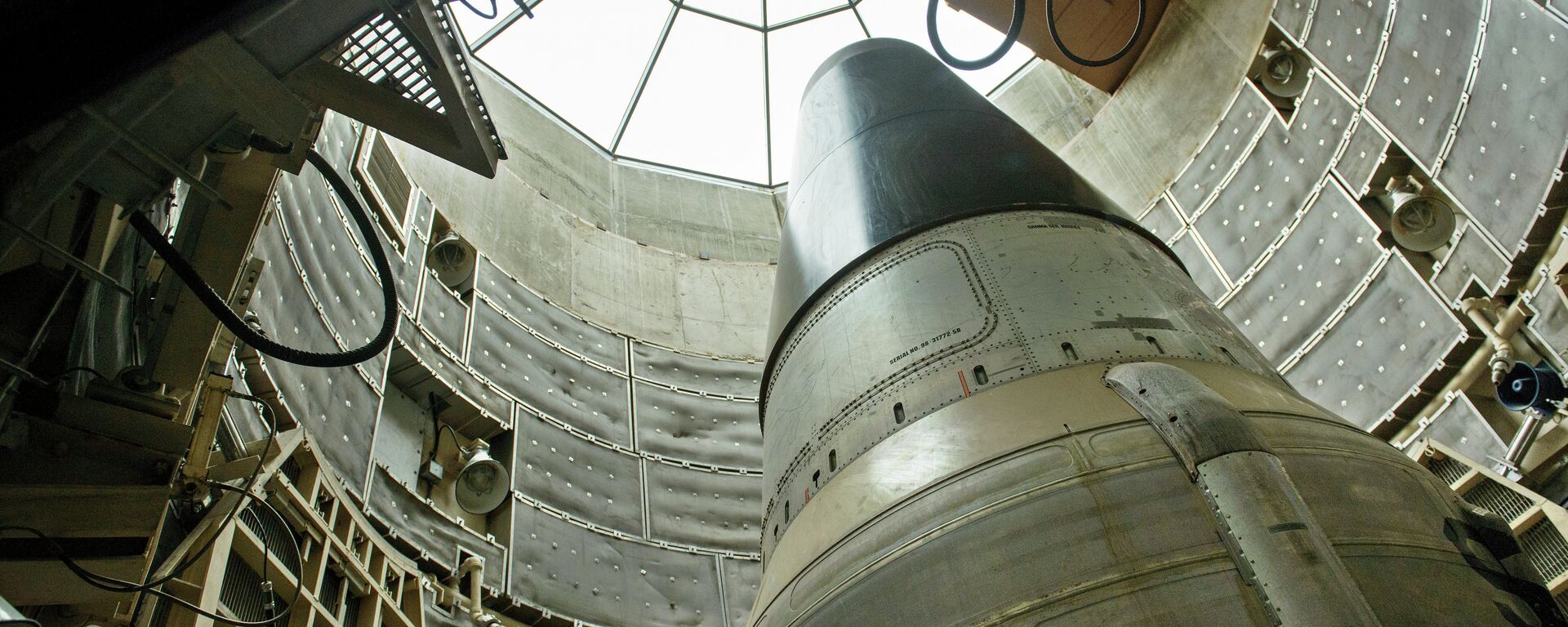
21 February 2023, 14:53 GMT
Russia's decision to suspend – not to withdraw, but to freeze – the New START Treaty also stems from clear logic, according to the observers.
During his speech, the Russian president cited several examples of Washington's attempts to overhaul the post-WW2 world order, agreed by major allied powers in Yalta in February 1945. Putin referred to the US' unilateral withdrawals from milestone strategic weapons treaties as well as instances when the West has resorted to outright cheating by expanding NATO towards Russia's borders and deploying massive ballistic missile installations in Europe under the guise of an illusionary nuclear threat from Iran.
Vladimir Putin drew attention to the fact that
New START and previous nuclear arms reduction treaties were closely connected to limitations on the deployment of ballistic missile installations in Europe. During the Soviet era, this threat was capped by the 1972 Anti-Ballistic Missile Treaty (ABM) signed between the United States and the Soviet Union which limited Moscow and Washington’s ability to build ballistic missile interceptors. However, George W. Bush unilaterally tore it apart in 2002, thus opening the door to a potential arms race.
Furthermore, the Russian president pointed out that the principle of reciprocity when it came to mutual inspections of nuclear sites under New START was not fully observed by the US. Moreover, NATO's two other nuclear powers, the UK and France, have never been bound by the treaty. On top of that, the West has openly proclaimed Russia's strategic defeat as its primary goal.
"I think it is tactical and shrewd to suspend New START," Kevin said. "It sends a strong signal. Putin is saying to the West - 'why should we engage in renewed strategic arms limitation talks with you when since 2014 at least, probably earlier, you have systematically betrayed our trust in you, and you have set out deliberately to use Ukraine as your proxy weapon to destroy our nation? (…) After the special military operation ends, you need to rethink your basic attitudes to sharing the planet’s sovereignty with Russia, China and the Global South. You are still trapped in your hegemonic post-colonial fantasy narrative which means you cannot see clearly what needs to be done to restore a stable global strategic balance. You need to go back to basics.'"
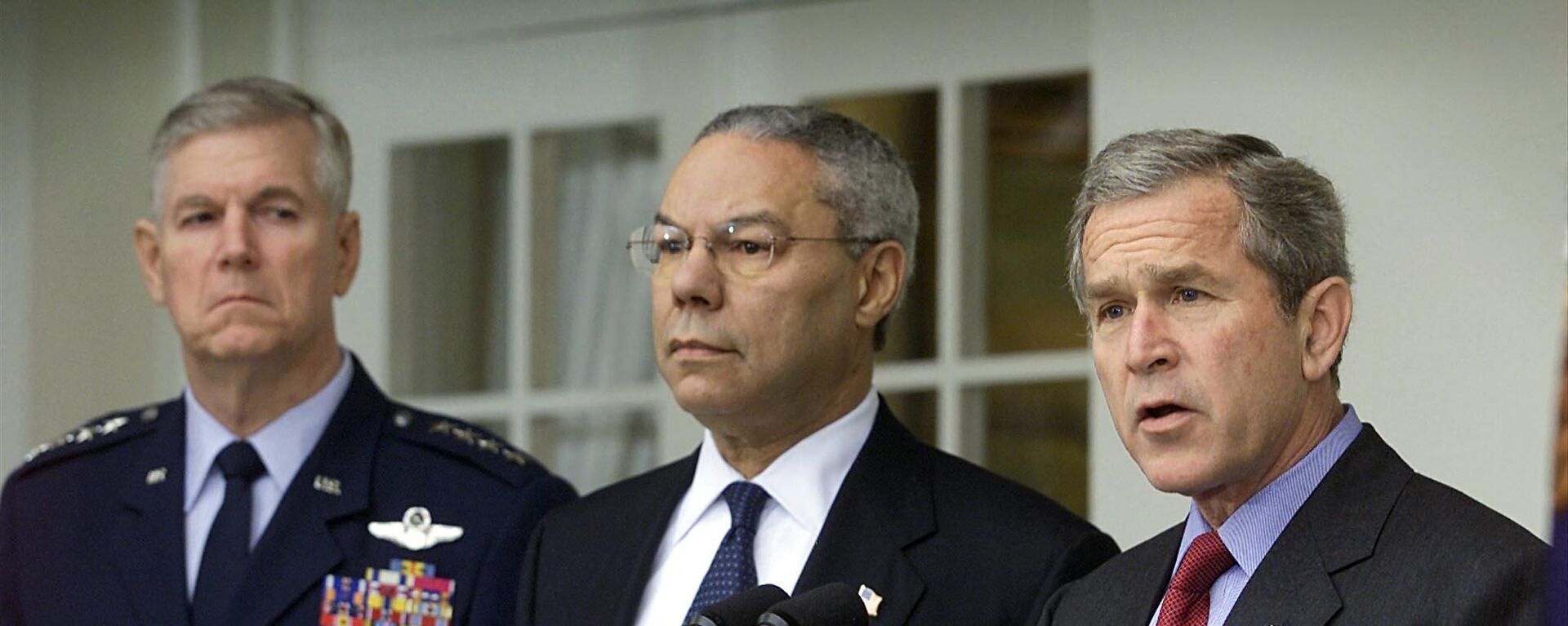
13 December 2022, 13:36 GMT
NATO's request that Russia provide access to its nuclear sites to the bloc's representatives amid an all-out hybrid war waged by the alliance against Moscow was an attempt to "normalize" the West's modus operandi, according to Suslov. If Russia bowed down and continued to comply with the New START agreements despite the West openly naming it as an "adversary" and pledging to bleed it white would have been a step in the wrong direction, the scholar suggested.
"It would send a message to the United States and to the rest of the world that the American policy of hybrid war against Russia is absolutely okay," Suslov said. "It was absolutely necessary for Russia to send a message that it will not agree to this idea of normalization of this hybrid war. And it is absolutely necessary to prove and to at least launch a dialogue in the United States to make them conclude that their actions vis-a-vis the Ukraine conflict really undermine strategic stability, that these are not two separate things. Hopefully there will be such a dialogue in the United States. Hopefully they will now understand that strategic stability and their national security, which is inseparable from strategic stability, is in question. So that might compel them to change their current policy vis-a-vis the Ukraine conflict."
According to Suslov, Putin's decision was "necessary" and "stabilizing." At the end of the day, it's not the suspension of New START that could heighten the risk of nuclear confrontation, but Washington's relentless efforts to inflict strategic defeat on Russia, to wipe Russia off the list of great powers, to weaken it irreversibly with all possible moves – "this is the major threat of nuclear war, because this policy which the United States conducts creates an immense risk of direct military clash between Russia and NATO, Russia and the United States," the Russian scholar concluded.
